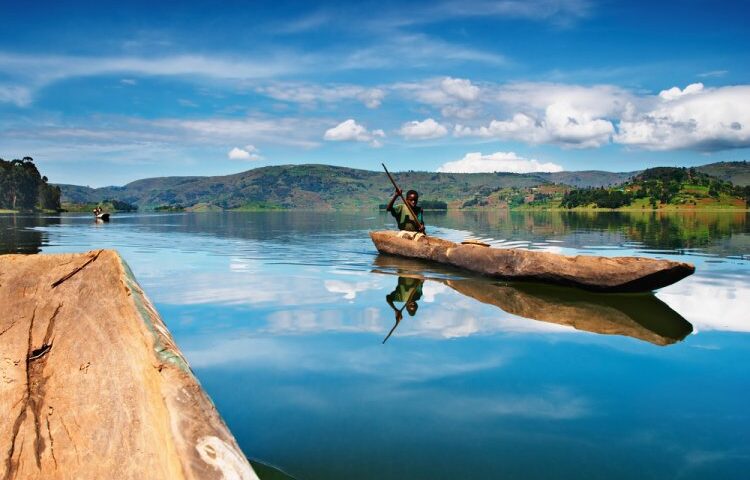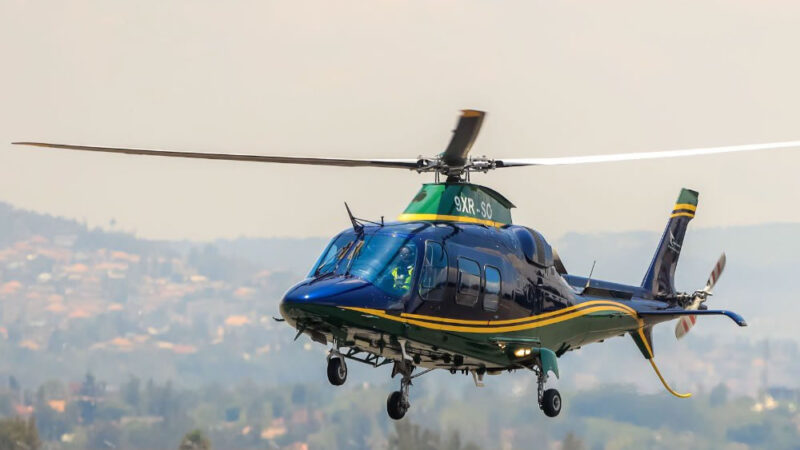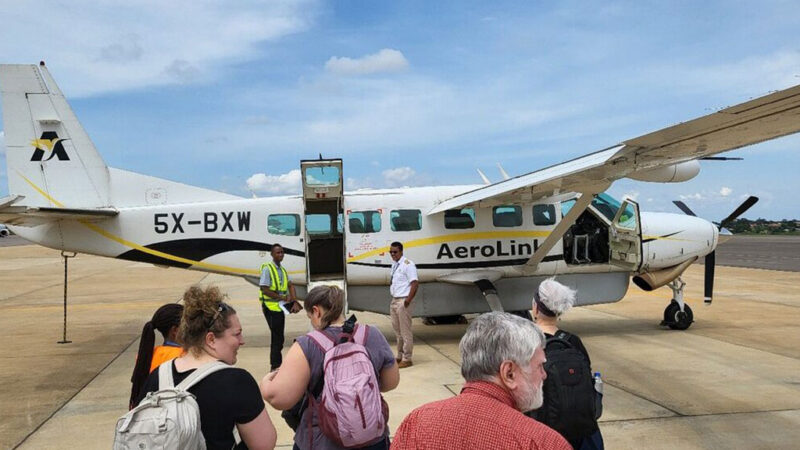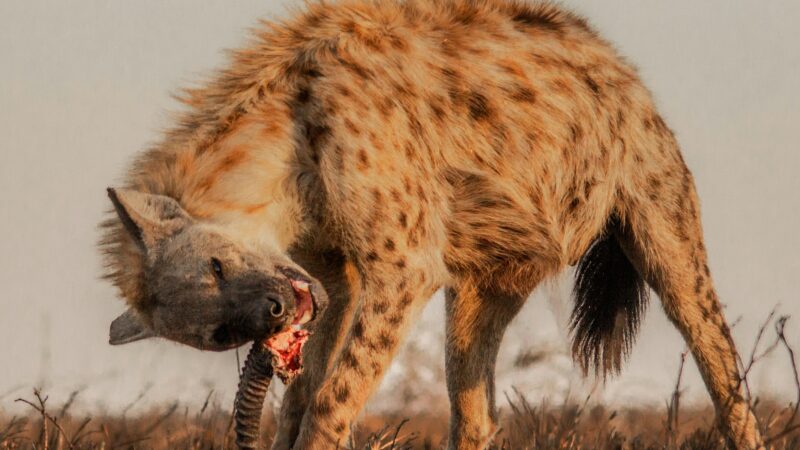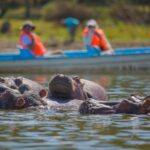
Exploring Africa’s Rivers and Lakes on Boat Safaris
June 16, 2025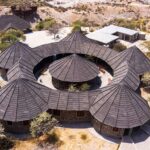
Safaris in Prehistoric East Africa
June 16, 2025When you picture a safari, the word “canoe” may not immediately come to mind. But for those looking to trade roaring engines for gentle paddles, canoe safaris offer a unique and intimate way to explore Africa’s untamed beauty. Unlike motorized boat safaris, a canoe safari slows the pace, quiets the noise, and heightens your senses.
You’ll drift silently through wetlands, lakes, and rivers watching elephants drinking at the shore, listening to the deep grumble of nearby hippos, and spotting crocodiles sunning themselves on muddy banks. From the lush edges of Lake Bunyonyi in Uganda to the winding channels of Selous (Nyerere) in Tanzania, canoe safaris are an immersive, lesser known adventure for the bold and curious traveler.
What is a Canoe Safari?
A canoe safari is a guided excursion on water using small, human powered canoes or dugouts. It’s typically done on calm waters lakes, gentle rivers, or channels and offers an incredibly close and peaceful wildlife experience. While motorboats create distance and noise, canoes allow you to blend into the environment.
Why Try It?
-
Closer encounters with birds and wildlife
-
Silent and eco-friendly way to explore
-
Great for active travelers seeking adventure and movement
-
Perfect for birders, photographers, and couples
Canoe safaris aren’t about speed they’re about depth. They invite you to sit low to the water, breathe in the wilderness, and let the landscape unfold around you.
1. Lake Bunyonyi
Lake Bunyonyi, meaning “Place of Many Little Birds,” is Uganda’s most scenic lake dotted with over 25 islands and surrounded by terraced hills. Best of all? There are no hippos, no crocs, and no bilharzia, making it one of the safest lakes in East Africa for canoeing.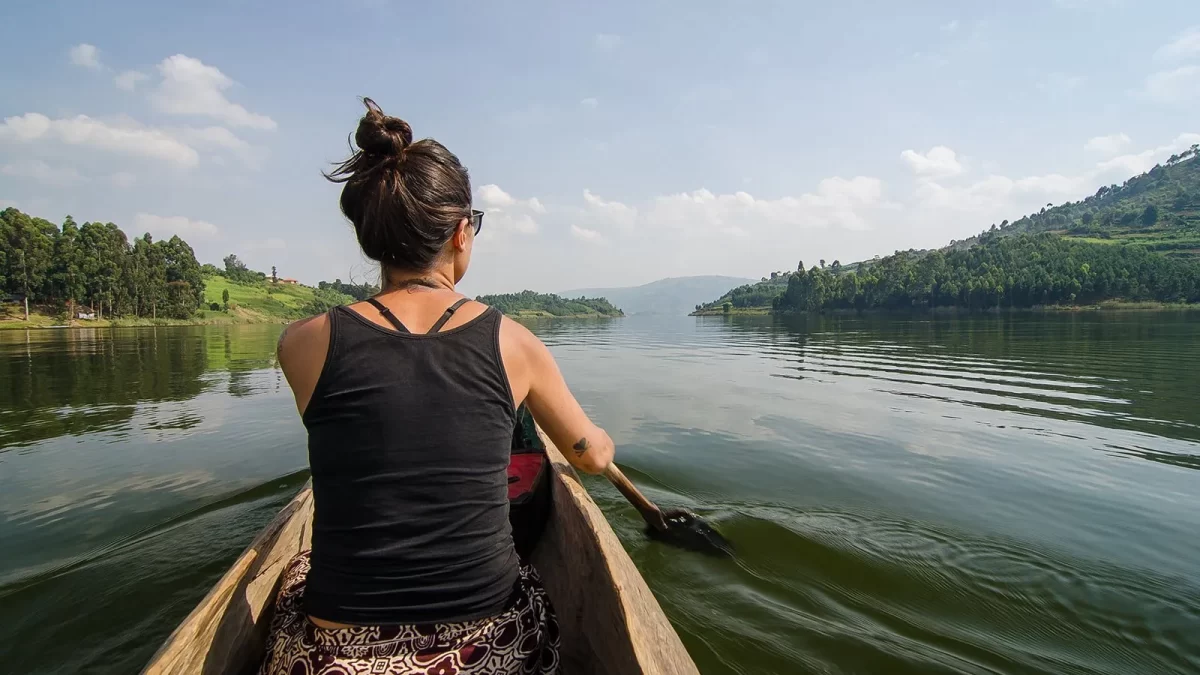
What Makes It Special:
-
Glide in a traditional dugout canoe
-
Visit island communities and learn about local legends (like Punishment Island)
-
Spot otters, weaver birds, and kingfishers
-
Enjoy mirror like waters surrounded by lush greenery
Ideal For:
First-time paddlers, families, honeymooners, and travelers seeking relaxation combined with cultural immersion.
Best Time to Go:
June to August and December to February the dry seasons when skies are clear and water is calm.
Traford Tip: Take a sunset paddle with a guide and hear the haunting calls of grey crowned cranes echoing across the hills.
2. Selous Game Reserve (Now Nyerere National Park)
Selous (now part of Nyerere National Park) is one of Africa’s largest wilderness areas, and the Rufiji River system is its lifeblood. While many opt for motorized boats, a canoe safari offers a deeper and more primal encounter.
What Makes It Special:
-
Navigate oxbow lakes and narrow channels
-
Watch hippos submerge just meters away (your guide knows exactly how close is too close)
-
Paddle past basking Nile crocodiles
-
Elephants, buffaloes, and impalas often come to drink at the shore
Canoeing here is about raw beauty and untamed nature you’ll feel the adrenaline of sharing space with giants while safely guided by professionals.
Ideal For:
Experienced paddlers and adventurous travelers seeking proximity to large wildlife.
Best Time to Go:
June to October during the dry season when the river is calm and wildlife is more concentrated along the banks.
Traford Tip: Combine the canoe safari with walking safaris and classic game drives to get all three perspectives land, water, and foot.
3. Mabamba Swamp
Just outside Entebbe, Mabamba Wetland is famous for its mysterious resident the prehistoric looking shoebill stork. The best way to find one? By traditional canoe.
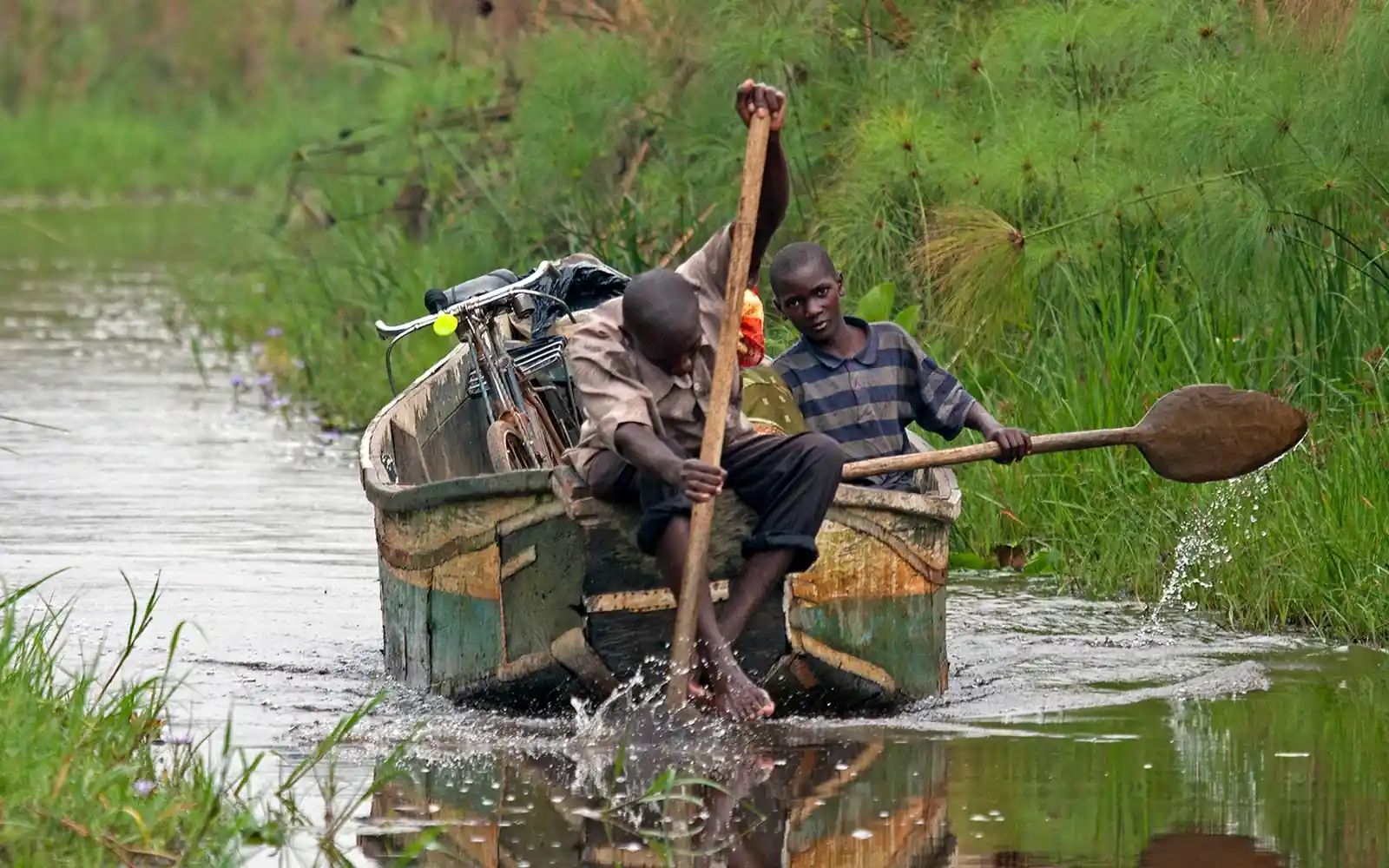
What Makes It Special:
-
Drift silently through papyrus lined channels
-
Spot elusive shoebills, papyrus gonoleks, and African jacanas
-
A birder’s dream experience
-
Quiet, early morning trips with expert local bird guides
Ideal For:
Birdwatchers, nature photographers, and anyone flying in or out of Entebbe with a few spare hours.
Best Time to Go:
All year round, though early mornings are best.
Traford Tip: Bring binoculars and wear muted clothing for better birding success.
4. Lake Mutanda
Located near Uganda’s Mgahinga and Bwindi gorilla parks, Lake Mutanda offers a perfect mix of scenic beauty and serenity.
![]()
What Makes It Special:
-
Canoe with views of the Virunga volcanoes
-
Visit small islands and lakeside villages
-
Peaceful waters with minimal tourism
-
Great add-on after gorilla trekking
Ideal For:
Post gorilla trek unwinding, photographers, and travelers heading toward Rwanda.
Tips for a Safe and Memorable Canoe Safari
Canoeing brings you closer to the wild but safety and preparation are key. Here’s how to enjoy it fully:
What to Wear and Bring:
-
Light, quick-drying clothes
-
Hat and sunglasses
-
Waterproof dry bag
-
Binoculars and camera
-
Reusable water bottle
Safety Tips:
-
Always follow the guide’s instructions
-
Don’t try to paddle close to hippos or crocs they may charge
-
Avoid sudden movements
-
Know your limits; choose half day or short paddles if new to canoeing
-
Wear a life jacket at all times
Who Should Try a Canoe Safari?
Canoe safaris are ideal for:
-
Adventurous couples or honeymooners
-
Birding and photography lovers
-
Travelers looking to unplug and slow down
-
Families with older children (minimum age often 12–15, depending on location)
Not recommended for very young children or travelers with mobility issues unless it’s a flatwater experience like Lake Bunyonyi.
Why Book a Canoe Safari with Traford Safaris Ltd?
At Traford Safaris Ltd, we don’t just take you into the wild we offer immersive, low impact adventures that bring you closer to nature. Our canoe safaris are led by certified guides with extensive local knowledge and safety training. We handle all logistics so you can simply show up, paddle, and be amazed.
Whether you’re floating past crocs in Tanzania or meandering through bird-filled channels in Uganda, your canoe safari will be a highlight of your African journey.
Final Thoughts
Canoe safaris may be less known than game drives or hot air balloons, but they offer something rare: raw connection. To paddle through Africa’s waterways is to travel as ancient people did—silently, watchfully, and with deep respect for nature.
So, if you’re craving a safari that feels personal, primal, and powerfully peaceful, it’s time to dip your paddle into the unknown.

